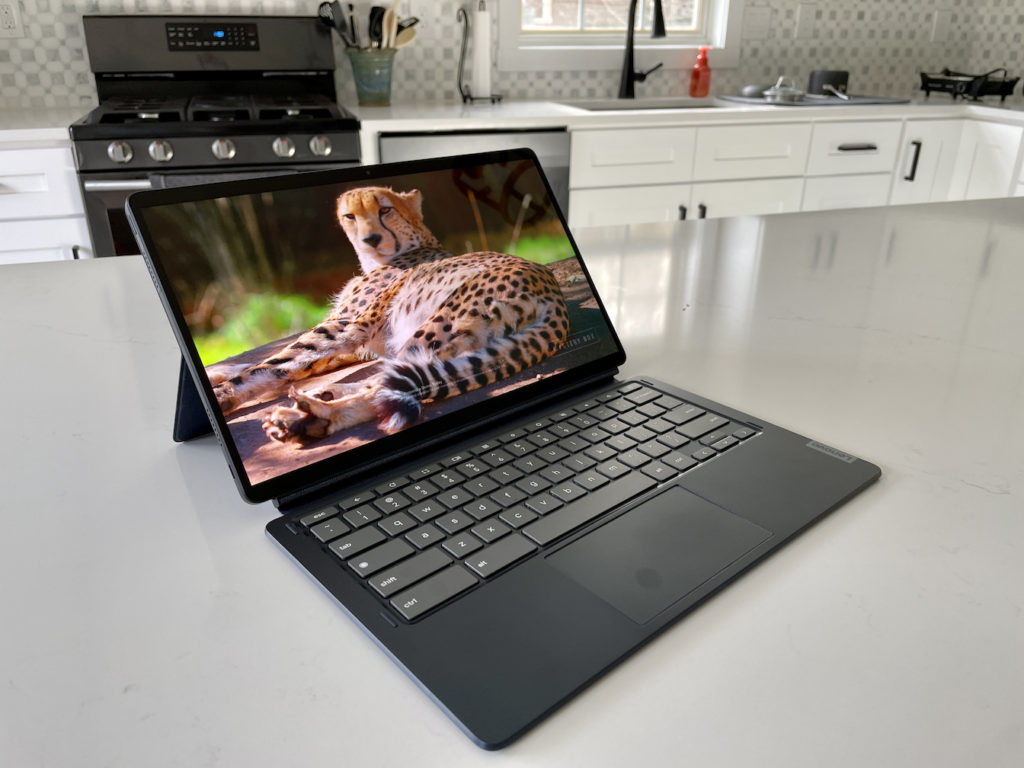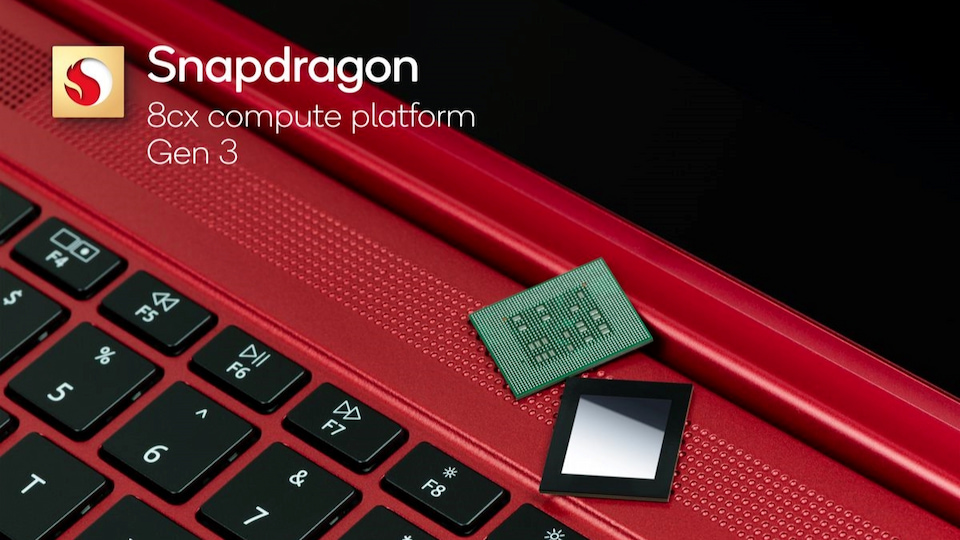There are a few Qualcomm Snapdragon 7c Chrome OS devices on the market today. But some might like to see the more powerful Snapdragon 8cx inside a Chromebook. Based on a code commit spotted by Chrome Unboxed, that wish may become reality: Snapdragon 8cx Chromebooks appear to be in the works.
Before you get too excited, know that Qualcomm reportedly has an exclusivity deal for the Snapdragon 8cx with Microsoft for Windows on ARM.
I read that meaning only the 8cx can be used for a Windows device using an ARM processor. However, it could work both ways: Devices with this chipset may be restricted to running Windows. Either way, that deal is expected to expire in 2023.

Corporate deals aside, what does the addition of the 8cx to the Chromium code mean, and what could it turn into?
The first question is relatively easy. Google is at least considering Chrome OS on Qualcomm’s latest ARM processor. The company wouldn’t do any integration work between the hardware and software if this wasn’t the case.
This doesn’t guarantee that Snapdragon 8cx Chromebooks will eventually become available. However, without this first step, they’d never become available.
The second question is more interesting because the latest generation of the Snapdragon 8cx brings quite a bit to the table when it comes to Chromebooks.
For instance, if this 5nm chip follows the first two generations, it has an 8-core processor with higher clock speeds than the 7c in current Chrome OS devices. Four of the cores can run up to 3 GHz while the other four drop to 2.4 GHz for their maximum speeds. The memory throughput is also much faster: 68.28 GB/s compared to the 17 GB/s of the 7c variants. And perhaps the best part is that there’s no slow eMMC storage supported. The Snapdragon 8cx only works with speedy NVMe flash storage.
Most of the latest radio technologies are also available to this system on a chip. Expect Wi-Fi 6E, Bluetooth 5.1, and the option for 5G integration. But there’s more as I dug deeper into Qualcomm’s official spec sheet of the third-generation Snapdragon 8cx.
This chip and its GPU support variable refresh rate displays up to 120 frames per second.
That coincides nicely with a new Chrome OS feature I discovered last week: Chrome OS 101 adds support for Adaptive Sync, which is another name for variable refresh rates. That would eliminate screen tearing for high-frame-rate video and games.

That could come in handy for Steam gaming on Chromebooks with this chipset. Qualcomm says this ARM processor can use one 4K internal display and a pair of external 4K screens.
Even if that feature wasn’t there, I’d want the 8cx over any 7-series Snapdragon silicon. It simply beats the pants off the latter while still offering all-day battery life and then some. Oh, and it does that without a fan.
Again, the code commit doesn’t guarantee we’ll see Snapdragon 8cx Chromebooks, and if we do, it’s not likely to happen until next year. My guess is that we see a few more Snapdragon 7c devices arrive in 2022 using the third generation of that chip. In 2023 though? Let’s just say I have my fingers crossed.



3 Comments
1. Yes, it is a 2-way licensing agreement. Snapdragon 8c is Windows-exclusive meaning that it cannot be used for not only ChromeOS but Linux. (There are a ton of developers who would be interested in relatively fast and cheap fastest “Debian family” ARM hardware … Linus Torvalds said so himself.) In return, Microsoft cannot license Windows to any other ARM vendor but Qualcomm, which is why we haven’t seen MediaTek Kompanio or Samsung Exynos Windows-on-ARM devices (Samsung desperately wants to build the latter but cannot) and in particular why you can’t legally run Windows on an M1 Mac.
2. Not sure that the license agreement is ending specifically. It is more so that Qualcomm has to make their BEST tech a Windows exclusive. This is why Google has always been free to approve Snapdragon smartphone and 7c boards. The only reason why they didn’t start doing so until 2020 was because thanks to the Oracle lawsuit they refused to approve any board with an integrated LTE or 5G modem. So what happens in 2023 is that the Snapdragon 8c gets replaced with Nuvia-based SOCs, which Qualcomm has stated will be Windows-exclusive. That is what will allow the 8c to be available to Chromebooks and – if Qualcomm or their OEM partners are smart – Ubuntu developer mini desktops.
3. Honestly, we don’t “need” the 8CX. Until more power-user features and native productivity apps come to ChromeOS, the MediaTek MT8195 is fine. And the Snapdragon 7c Gen 3 – which unlike the previous Snapdragon 7c chips has 4 performance cores – is more than fine. Example: yes the 8CX Gen 3 would give you the CPU performance necessary to run Blender, do machine learning or run MiniKube in theory but without discrete GPUs or better use of external storage (which right now you can’t even download Steam games to) the extra horsepower is (almost) as pointless as an M1 chip on an iPad Air.
What we need is manufacturers to actually build Chromebooks using them and sell them. The MT8195 has been available to manufacturers since 2Q2021. It is actually an outdated chip now (its Cortex-A78 has been replaced with the Cortex-A710, and its 6nm process is now a legacy one for ARM chips: AMD’s x86 laptop chips are on it now, as are Intel and Nvidia GPUs). But we won’t get our first MT8195-based device for 3 more months. Similarly, multiple Snapdragon 8cx Gen 3 Windows 11 devices have been announced – most notably the Lenovo ThinkPad X13s – but the next 7cx Gen 3 Chromebook to be announced will be the first. And it isn’t an ARM anomaly. The HP Dragonfly Chromebook may be the only Alder Lake Chromebook on the market until summer.
I get that there is a component shortage. But even lesser Windows OEMs like Acer, Asus and Samsung would rather chase every single Windows dollar despite fully knowing that they are going to come in behind HP, Lenovo and Dell for enterprise/consumer models (and behind Razer and MSI also for gaming) instead of coming out with new Chromebook models in a Chromebook shortage that has been going on for approaching a year. It is frustrating.
maybe i’m the only person who would like a more powerful ‘small’ chromebook with perhaps the following ‘approx’ tech details 10″case; 8 windows10, with ability to upgrade to windows11 and lots of storage perhaps i’m crazy! thanks x
The dimensity 9000 has the same performance of a SD 8 gen 1 and almost an M1, let’s see it in action on ChromeOs and its Android container